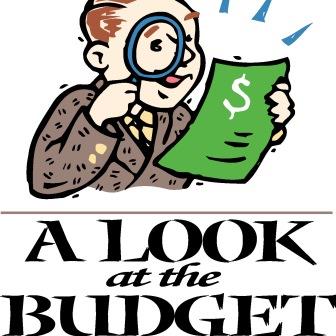
News

Budget keeps downgrades at bay – for now
MICHAEL KRANSDORFF
Joseph warned pharaoh that his dream about seven fat cows eating seven thin cows was a forecast on Egypt’s economic outlook: seven years of plenty followed by seven years of scarcity. And what was his advice? Save in the good years through higher taxes, which you can distribute as social grants to help alleviate the suffering in the bad years.
When South African Finance Minister Pravin Gordhan rose in Parliament last week to present his 2016 budget, it was too late to channel Joseph. If only our government ministers had paid more attention to their bible studies. For we have squandered an unprecedented 21 fat years and now face a significant number of lean years without reserves to draw on.
In fact, we have actually built up significant debts and the major objective of Gordhan’s speech was to try and keep our nervous international creditors at bay.
Gordhan seems to have done enough on this front for now. With a pragmatic mix of tax hikes and spending cuts, he was able to close the R30 billion funding gap for 2016. The major credit rating agencies responded relatively positively to this.
Following the speech, they announced that barring any unforeseen developments (like a firing of another finance minister) they will keep our credit score unchanged – at least until their midyear review.
While fiscal belt-tightening may keep our creditors from the door in the short run, reinvigorating growth (and consequently expanding the tax base) is the only longer term strategy for averting a credit crisis.
On this count, the budget fell short of expectations. Growth has fallen from highs of 5,6 per cent in the fat years of the 2000s to a paltry 1,3 per cent% in 2015. And the National Treasury (optimistically in my view) estimates that it will slow further to 0,9 per cent this year.
Our economy is experiencing the perfect storm. A drought, plunging commodity prices on the back of slowing Chinese demand for our major exports, the outflow of capital from emerging markets as US interest rates begin to rise and now tighter financial conditions at home as well.
In light of the situation, continued lip service to the much praised but largely unimplemented National Development Plan, will just not cut it.
Major policy reforms are needed to boost business confidence and encourage corporate South Africa to invest the very large pile of cash sitting idle on its balance sheet. South Africa now ranks a disappointing 73rd on the World Bank’s Doing Business Index, well behind developed countries and most of its middle income peers.
We score particularly badly on key metrics like ease of starting a business and trading across borders. This needs to start improving quickly if we are to have any hope of stimulating growth.
This can only be achieved with strong political leadership willing to challenge parasitic vested interests, be they in organised labour, the civil service, or big business. We failed to heed the financial advice of Joseph but now we require a Moses to lead South Africa on a new economic path.
Michael Kransdorff is a global investment strategist with a focus on retirement and tax planning.





nat cheiman
March 4, 2016 at 3:48 pm
‘I’m afraid you are wrong’